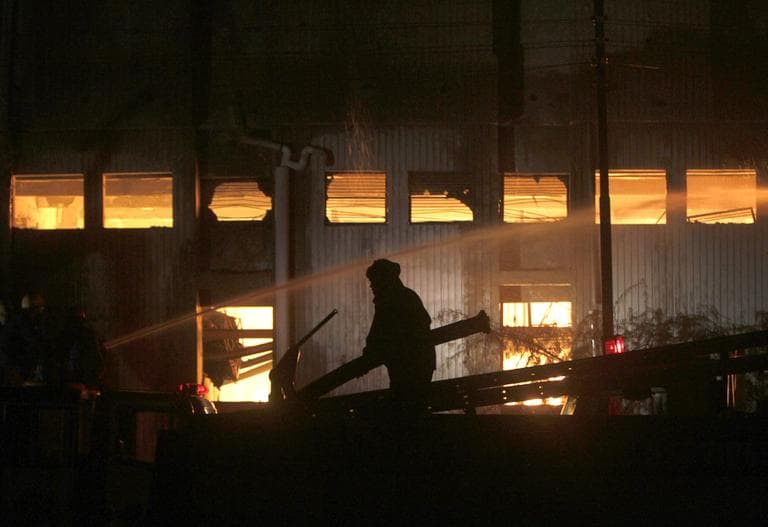Advertisement
Deadly Pakistan Factory Fire Raises Questions Over Safety Inspections
Resume
A leading trade union in Pakistan says factories in that country are more like death traps than work places.
Last month, nearly 300 people were killed when fire swept through the Ali Enterprises garment factory in Pakistan's largest city, Karachi.
It turns out the factory had recently been inspected and had received the highest possible safety rating, even though faulty wiring and unsafe chemicals were found at the factory after the fire. And while the building was burning down, locked doors may have prevented some people from escaping. In fact, some workers jumped out of windows to escape the flames.
Once you're delegating this authority to dozens of firms around the world working without any supervision, you are putting in place a system you cannot control.
Scott Nova
The New York-based Social Accountability International certified the factory. The organization says its mission is to advance human rights of workers around the world.
But Scott Nova, executive director of the Worker Rights Consortium, said SAI and other monitoring companies aren't reliable.
"While SAI claims that its mission is to advance the rights of workers around the world, what SAI really does is protect the reputations of apparel brands around the world," Nova told Here & Now's Robin Young.
Conflict of Interest?
Nova said that the monitoring companies suffer from a conflict of interest because they're funded largely by the companies they're certifying.
In many case, the factories choose and pay the monitoring agencies that issue the certifications.
Nova said that leads to certifications being given out that are neither safe nor responsible.
Outsourcing Safety Certifications
Just as global apparel brands are outsourcing production of their products to factories in places like Pakistan, monitoring firms are outsourcing safety inspections to companies around the world.
For example, SAI is based in New York, but it hires other firms to issue safety certification.
"Once you're delegating this authority to dozens of firms around the world working without any supervision, you are putting in place a system you cannot control," Nova said.
SAI officials say they have stopped working with the Italian company that certified the Ali Enterprise factory in Pakistan, and they are engaged in a broad review of the whole certification process.
Meanwhile, about 10,000 factories around the world currently have received this SAI certification.
Guest:
- Scott Nova, Worker Rights Consortium executive director
This segment aired on October 2, 2012.